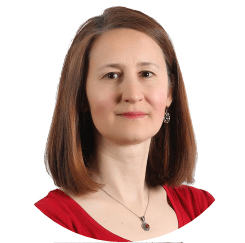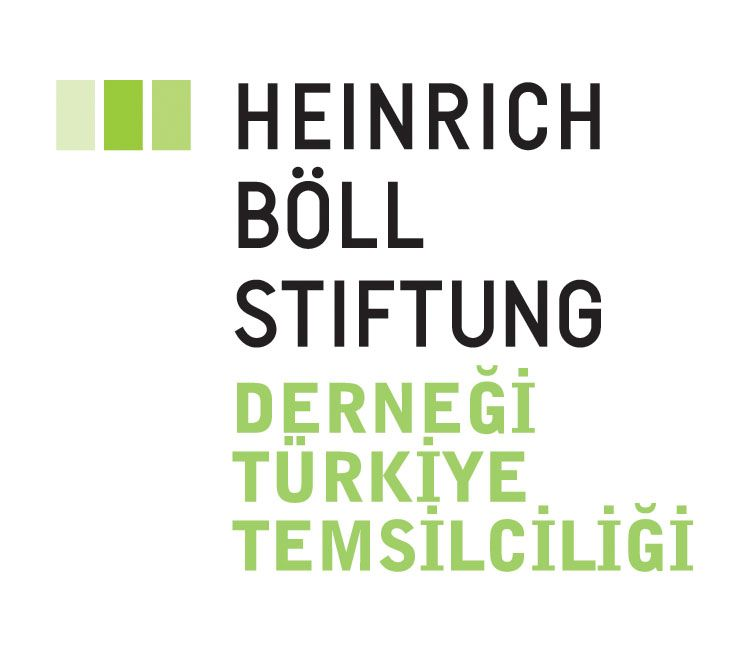
Both Turkish people and Anatolian territory have a history interwoven with migration. A significant milestone in Turkish history is the migration of Turkish people from Central Asia to Anatolia. From that time onwards, Turkish history has always witnessed human mobility. The collapse of the Ottoman Empire and then the establishment of the Republic led to the emigration of people from Anatolia to neighboring countries on the one hand and immigration from the adjacent territories to Turkey on the other hand. During the long-lasting human mobility that lasted for centuries, Turkey has sometimes become the origin of migration, sometimes a transition country, and at other times the target country.
Despite this history full of human mobility, what Turkey has been experiencing since 2011 differs from the former waves of migration for several reasons. Because of the vast numbers involved in such a short time, Turkey has become the country with the most populous refugee population in the world. It should be noted that due to its geographical reservation to the Convention Relating to the Status of Refugees (Geneva Convention), Turkey does not recognize Syrian people as refugees but as people under temporary protection. However, despite this reservation, I use the concept of refugees here because of the facts.
In this regard, according to the statistics of the Presidency of Migration Management of the Ministry of Interior, there were 3.646.278 Syrians in Turkey with temporary protection status by the end of September 2022. If we add other asylum seekers from other countries, the total number of migrants in Turkey comes to about 4.000.000. There are also unregistered asylum seekers, whose number is not included in this statistic. If we add their estimated numbers, the total number is substantially higher than the official number. In this regard, more refugees arrived in Turkey in the last 11 years (between 2011-2022) than had been the case in the preceding 87 years between 1923-2010.
Turkey and Migration from Syria
The first migrant group from Syria, consisting of 252 people, arrived at the Cilvegözü border gate of Turkey on 29 April 2011. At that time Turkish government was following the policy of open borders and defining Syrian refugees as “guests” who were supposed to remain in Turkey till the end of the war.
The migration of Syrian people to Turkey is different from the previous migration waves for several reasons. First, the number is substantially higher than in the earlier cases of human mobility. Second, Syrian refugees have different ethnic-cultural characteristics and speak a foreign language. In this respect, for example, they differ from the Turks from Bulgaria, who were forced to migrate to Turkey in 1989. Third, most Syrian refugees cannot return to their mother country and will probably remain in Turkey.
These three characteristics make the recent migration wave unique in Turkish history. The opinion polls conducted in recent years show that Turkish people have an increasingly hostile attitude towards refugees.
From “Helper-Migrant” (Ensar-Muhacir) Discourse to “Will We Carry This Burden Alone?”
We can explain why the refugee issue has become a significant problem based on the current data. First, the future projection of Turkish decision-makers in 2011 has been proven wrong, costing Turkey a lot. At the time, Turkish decision-makers supposed that the Syrian regime would fall in a few months, and they did not consider different scenarios. As the Syrian refugee population increased tremendously, Turkey made amendments to its legal system to cope with the situation. In this regard, Turkey issued the Law on Foreigners and International Protection in April 2013 and prepared Temporary Protection Regulation in October 2014. In line with the new regulations, Syrian people are considered people under temporary protection.
Second, the Justice and Development Party (JDP) government had initially used religious and emotional motives instead of principles of international law to convince the Turkish public to accept the Syrian refugees. However, as time went by, this attitude caused problems. The metaphor of “helper-migrant” (“ensar-muhacir”) based on the history of Islam has been used repetitively. The JDP elite has tried to establish a parallel between the Muslims under the leadership of Prophet Mohammed, who sought refuge in Medina in 622 escaping the atrocities in Mecca. The government has tried to convince the public about the necessity of an open-door policy by appealing to the people’s emotions and using these historical-religious metaphors.
It should be noted that in the official discourse, the rights of refugees based on the Geneva Convention were not emphasized. However, it is well-proven that if the government’s policy toward refugees is not based on international law, it will not be sustainable. In short, Turkish decision-makers have not approached the issue of refugees based on their legal rights, but emotional and religious explanations were put forward.
Another critical point is that the peak of the refugee problem has been accompanied by a process in which the JDP leadership has tried to reconstruct the concept of Westernism (Batıcılık-Garpçılık). On the one hand, the government has described Turkey as a country that implemented a humanitarian policy towards refugees by pursuing an open-door policy and providing every kind of assistance. On the other hand, European countries are being accused of a racist populist policy by closing their doors. Therefore, the distinction between “we” versus “they” was strengthened. In this way, the refugee issue has not only become a domestic issue but has also become an instrument of foreign policy. In this framework, whenever the government wants to criticize the West, the refugee issue has become a factor of “otherization”.
In addition, we should also underline the incoherent discourse of the government. As the civil war in Syria started in 2011, dynamics of domestic policy, as well as perceptions of public opinion, have directly affected the attitudes of political leaders. In turn, this has resulted in different discourses toward refugees. In this framework, sometimes citizenship has been promised to refugees, but at other times, it has been stated that they can move to European countries or return to their countries. President Erdoğan, for example, said on 5 September 2019 that Turkey wanted to establish a safe zone in Syria. And he further explained that if this could not be achieved, Turkey needed to open its borders. About a month later, on 10 October 2019, he called on Europe by stating, “European Union, come to yourself. If you describe our operation as an invasion (işgal), we have an easy job. We will open the doors. We will send 3.6 million refugees to you.” About one month later, he came up with an opposite statement: “We share the worries of people who are far away from us by thousands, ten thousand kilometers because of the common denominator of Islam, being an umma…Some say that ‘Syrians should go’. We would not accept it. Universal Islamic brotherhood does not have a border. Nobody can plant the seeds of separation between us.”
As a result of these wavering policy lines, in one instance, Turkey opened the border gate with Greece on 28 February and encouraged the flow of refugees. This quick policy shift shows how the government’s policies towards refugees can be reformulated daily with the current political interests. For example, in contrast to the above statement, President Erdoğan stated on 2 March 2020, after the Greek border was opened, that the “European Union implements double standards today…Where are the fair burden and responsibility sharing? Should we carry this burden alone?”
The contradictions of discourses and policies of the government towards Syrian refugees are not limited to these examples. Although the government had named the refugees as “guests”, “sisters and brothers”, and “helper-immigrant” (ensar-muhacir) in the first few years of the migration flow, this discourse came to an end in recent years, as various opinion polls indicated increasing negative views of the public towards the refugee population. In addition, a linkage between the government’s policies towards migration and its defeat in the 2019 local elections was presumed. All these factors had an impact on the changing discourses and policies.
Furthermore, a new nationalist right-wing political party called Victory Party (Zafer Partisi) has securitized the issue and claimed that as soon as it comes to power, it will send all the refugees back to their homelands. Indeed, Turkish rulers have claimed that 1.000.000 Syrian people under temporary protection will return to Syria to settle at homes that Turkey has constructed for them in the north of the country. As Turkey has already entered the election atmosphere, the government increasingly states that it will encourage the refugees to return.
The refugee issue has become a vital topic in domestic political discourse that will impact the country’s future domestic and external policies. The previous examples in migration history prove that most of these people will continue to stay in Turkey. On the one hand, refugees are becoming increasingly permanent; on the other hand, the Turkish public has more negative views towards them, and some political parties are pursuing policies to construct them as “other”.
While people under temporary protection have rights stemming from national and international legislation, the Turkish public also has legitimate concerns about the results of this vast migration movement on the country’s future. Moreover, when domestic economic problems deepen, and new refugee movements emerge due to the war in Ukraine, this issue will continue to be a significant challenge for Turkey.
In conclusion, Turkish governments have followed ever-changing policies toward the migration flow after the beginning of the Syrian civil war in 2011. Open-door policy during the early years has changed over time. On the one hand, they are encouraged to return to their homeland. On the other hand, they can settle wherever they want within the country. Through time the discourse based on religion and affection has declined considerably.
Large human mobilizations constitute severe challenges for all countries, including Turkey. Should Turkish rulers wish to deal with the issue successfully in the future, they need to create a rational balance between the rights of refugees under international law and the increasing concerns of the Turkish public. In this framework, we can state that constantly changing the discourse and policies toward refugees for the sake of day-to-day political expectations will serve neither the interests of refugees nor the interests of the country.
* The author has benefitted from the following study in preparing this analysis: Birgül Demirtaş, “Türkiye’de Siyasi Partiler ve Suriyeli Mülteciler: Zorlu 10 Yılın Analizi”, Berk Esen ve Başar Baysal (eds.), Eleştirel Güvenlik ve Türkiye. Uluslararası İlişkilerde Alternatif Yaklaşım, İstanbul, İletişim Yayınları, 2022.

Prof. Dr. Birgül Demirtaş, Turkish-German University
Birgül Demirtaş is a faculty member at the Turkish-German University. She completed her undergraduate education in Boğaziçi University, her graduate education in Bilkent University, and her doctorate in Free University of Berlin (Freie Universitaet Berlin). She works on Turkish foreign policy, German foreign policy, the Balkans, local diplomacy and gender in academia.
To cite this work: Birgül Demirtaş, “The Evolution of Turkey’s Refugee Policy: Bundle of Contradictions on the Long Thin Road”, Panorama, Online, 10 November 2022, https://www.uikpanorama.com/blog/2022/11/10/cu/

This article has been prepared with the support provided to the International Relations Council and the Global Academy by the Heinrich Böll Stiftung Association Turkey Representative within the scope of the project titled ‘Foreign Policy for the 21st Century; Peaceful, Equitable, and Dynamic Turkey’.
Copyright@UIKPanorama. All on-line and print rights reserved. Opinions expressed in works published by the Panorama belongs to the authors alone unless otherwise stated, and do not imply endorsement by the IRCT, Global Academy, or the Editors/Editorial Board of Panorama.

